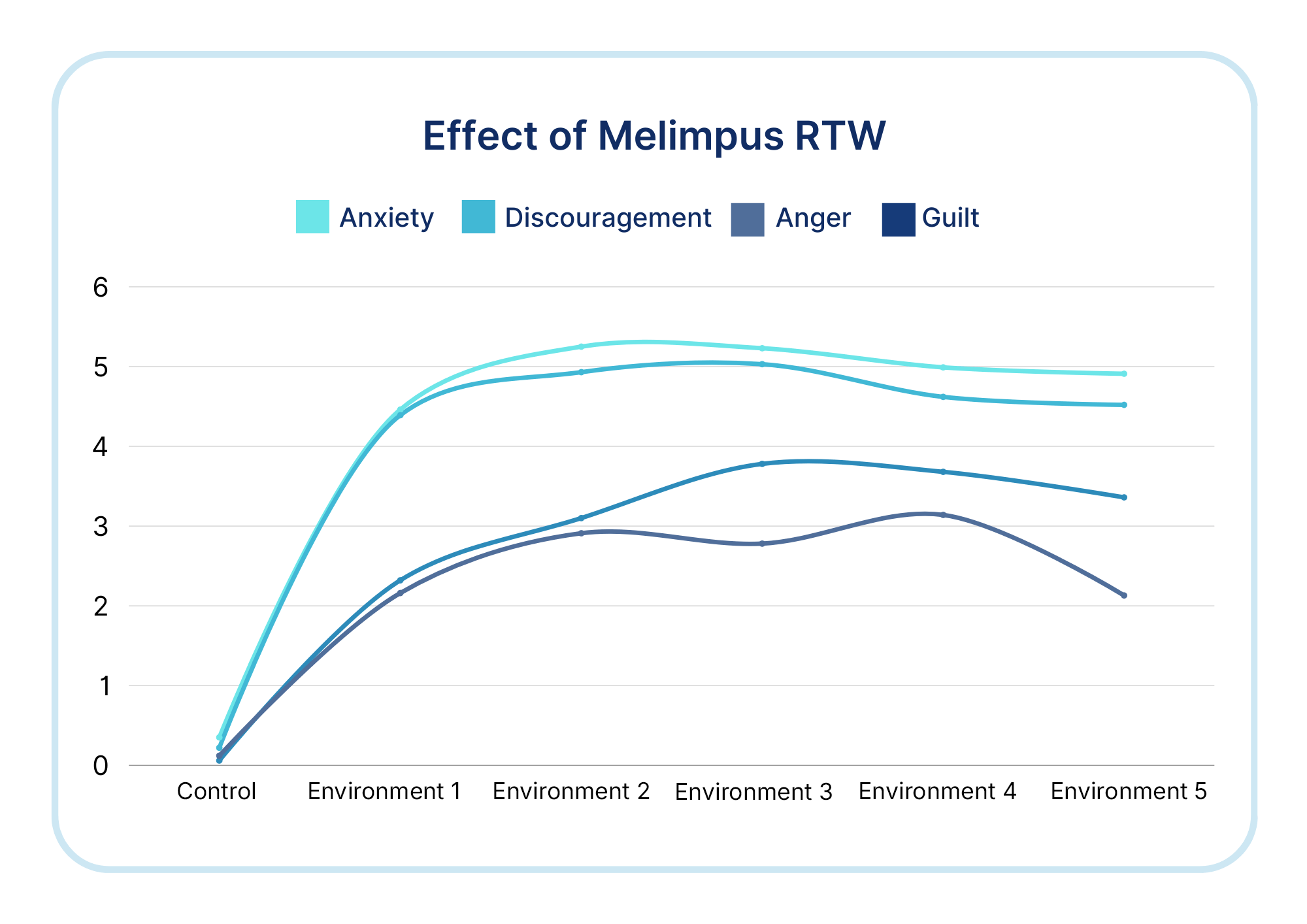VR is a proven therapeutic and training tool
Virtual reality has proven its efficacy in exposure therapy, helping individuals to overcome phobias, anxiety and PTSD by safely immersing them in triggering situations¹.
By recreating anxiety-inducing scenarios within a controlled space, VR allows individuals to gradually confront and conquer their fears. It has also demonstrated remarkable effectiveness in developing soft skills. The ability to customize repetitive exposure to the user’s makes the training even more effective and true-to-life.
¹ Rizzo & Koenig, 2017

VR is effective in soft skills training
4x
faster to train than in the classroom
275%
more confident to apply skills learned after training
3.75x
more emotionally connected to content than classroom learners
4x
more focused than their e-learning peers
Source: PWC, What does virtual reality and the metaverse mean for training?, 2022

Melimpus RTW is an effective tool
The objective of the study was to assess whether Melimpus RTW can elicit emotional responses in participants.
These emotional responses create opportunities to observe, reflect, and practice regulation strategies in a safe and guided environment.
A cohort of 70 participants, aged 23 to 64, experienced all environments and dialogues with the support of a trained professional. The study demonstrated that Melimpus RTW consistently triggered measurable emotional reactions, confirming its relevance as a learning and development tool.
Case series and feasibility study
- Clear impact on Return-to-Work self-efficacy.
- Over 70% of patients felt like they really were at work.
- 80% reported discussions were real.
- 90% of users experienced work-related stress.
- Over 80% would repeat the experience.
Effective work-reintegration after a burnout
A study is currently underway, enrolling individuals who have experienced burnout. Its goal is to demonstrate that Melimpus RTW enhances self-confidence (self-efficacy) in returning to work compared to traditional methods.

